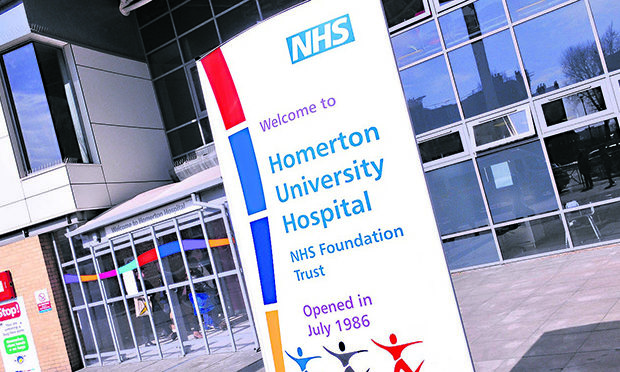Coroner calls for changes to warning alarms on oxygen machines after confusion ‘hastened’ death of Covid patient in Hackney

The death of a patient at Homerton Hospital has prompted a warning from a coroner that alarms on certain medical machines sound the same, making it harder for staff to discover what is wrong.
Inner North London’s senior coroner Mary Hassell sent a prevention of future deaths notice to the head of patient safety at NHS England and the Medicines and Healthcare products Regulatory Agency (MHRA) detailing her concerns.
She said alarms on a machine sound the same irrespective of whether the problem is serious or not.
The move follows the death of 60-year-old Chimezie Daniels from Covid during the peak of the second wave of the virus in January this year.
He was suffering from severe lung disease but problems with a machine meant he was deprived of oxygen for over 20 minutes, which could have hastened his death by two days.
According to a Homerton Hospital report, he deteroriated as a nurse was trying to put him back on a Continous Positive Airway Pressure (CPAP) machine after eating breakfast.
In a report to the hospital board, chief nurse Catherine Pelley said: “The nurse ‘worked backwards’ and placed his breathing mask on first and didn’t realise that the oxygen connection had not been plugged into the wall. The doctors attended and were trying to understand the issue.”
She explained: “The warning alarms on the CPAP machines at the time were all standardised, therefore until someone investigated that alarm, it was not possible to tell the reasoning for the alarm sounding.”
The report said the alarm sound would be the same for a small leak and for a complete lack of flowing oxygen.
When doctors treating Daniels realised what was wrong, the oxygen port was connected.
However they could not hear the ‘click’ in the wall “to ensure full connection due to the noise of the alarms, PPE and staff talking”.
It meant Daniels was left without oxygen for around 22-25 minutes and died.
In her narrative verdict, Hassell said Mr Daniels’ death “was hastened, probably by around 48 hours, by a 20-25 minute interruption to the oxygen supply from the continuous positive airway pressure (CPAP) that was being administered to him in hospital”.
She added: “This interruption was caused by individual errors. However, these errors were made during an extremely pressured period of the Covid-19 pandemic, in the context of a suboptimal CPAP machinery alarm system.”
In her prevention of future deaths notice, she said: “Clinicians told me that it would be much more helpful if very serious matters were denoted by an urgent alarm, and less serious matters in another way.”
When the alarm on Mr Daniels’ machine sounded, four other alarms went off for the other patients in his nursing bay.
This was at the height of the second wave of the pandemic when the pressure on beds meant CPAP patients were treated on medical wards rather than in the high dependency unit.
Hassell told the NHS and MHRA they have the power to take steps to prevent future deaths. They have to respond to her report by 20 September.
A hospital spokesman said: “Our sincere condolences go to Mr Daniels’ family. Staff at Homerton have worked incredibly hard during the pandemic to treat patients with Covid and have received additional training in the use of CPAP and new techniques to ensure their patients get the care they need.”
